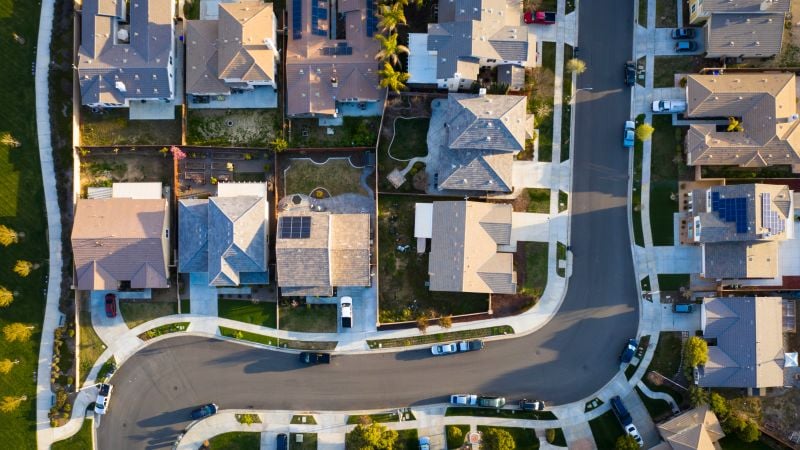After 33 years and four children, Baby Boomers Marta and Octavian Dragos say they feel trapped in what was once their dream home in El Cerrito, California.
Both over 70, the Dragos are empty nesters, and like many of their generation, they’re trying to figure out how to downsize from their 3,000-square-foot, five-bedroom home.
“We are here in a huge house with no family nearby, trying to make a wise decision, both financially and for our well-being,” said Dragos, a retired teacher.
But selling and downsizing isn’t easy, appealing or even financially advantageous for many homeowners like the Dragos family.
Many Boomers whose homes have surged in value now face massive capital gains tax bills when they sell. This is a kind of tax on the profit you make when selling an investment or an asset, like a home, that has increased in value.
Plus, smaller homes or apartments in the neighborhoods they’ve come to love are rare. And with current prices and mortgage rates so high, there is often a negligible cost difference between their current home and a smaller one.



This is part of a growing class of “house rich, cash poor” people.
They can’t afford to move because the sale price of their existing (oversized) houses would not be enough to buy existing stock of smaller houses, in spite of the crazy market. The old houses they live in are increasingly in exurbs or even age-restricted communities that the kind of new family that might need a house that size can’t be in for totally different reasons.
Plus they might want to stay in that community. Maybe that’s where their friends or family are. Their doctors. All that kind of stuff. And it’s not unreasonable for a person to want to keep living where they have a social network.
They also can’t rent out rooms or ADUs because local zoning laws arbitrarily forbid it either directly or by enforcing things like minimum parking requirements that are not achievable. Which would be one great way to increase housing supply and let people stay where they are; turn extra space into more housing. But these boomer houses tend to be in the most restrictive type of suburbs that stifle the rights of the homeowners and prevents sustainable growth.
They increasingly don’t have pensions because those disappeared in their lifetimes. Retirements funds got fucked by a variety of financial catastrophes in the intervening years, so they’re increasingly relying on social security checks to pay for their (mandatory) car, big ass house expenses, and all that stuff. They’re living well above their means and even if they realize it and want to make a change, the actual ability to do so is a massive problem.
The net result of this situation is even more tightness in the housing market. Even less real stock, since the ability to downsize is so lousy.
This thread has a sure lot of angry people and boomer hate in it. Which I get, but this is all part of the same housing problem with the same solutions – more low-cost/smaller homes need to be built and fewer restrictive codes/zoning rules preventing common-sense housing. A lot of people want to develop the properties that people want to buy, but city policies are often the biggest obstacle to them – that and lack of financial products to fund development thanks to the gradual snuffing out of local banks.
deleted by creator
Thank you!!!
Selfish boomers with a 2million dollar house don’t get to complain about taxes and get pity.
Why’d you put this in reply to my comment?
deleted by creator
Huh? Did you only read that single sentence from the entire thing I wrote? I posted explaining my take on what the problem being described in this article really is. Then how this situation doesn’t just affect the older, house-rich folks, but how it goes on to hurt all of us. And moreover how the fixes for the general problems in housing policy to help everyone get into more affordable homes would also help these same people.
… and your takeaway from what I wrote is that I’m white knighting for boomers?
That’s very frustrating for me.
They’re going to have to get a roommate, and lay off the Starbucks and avocado toast.